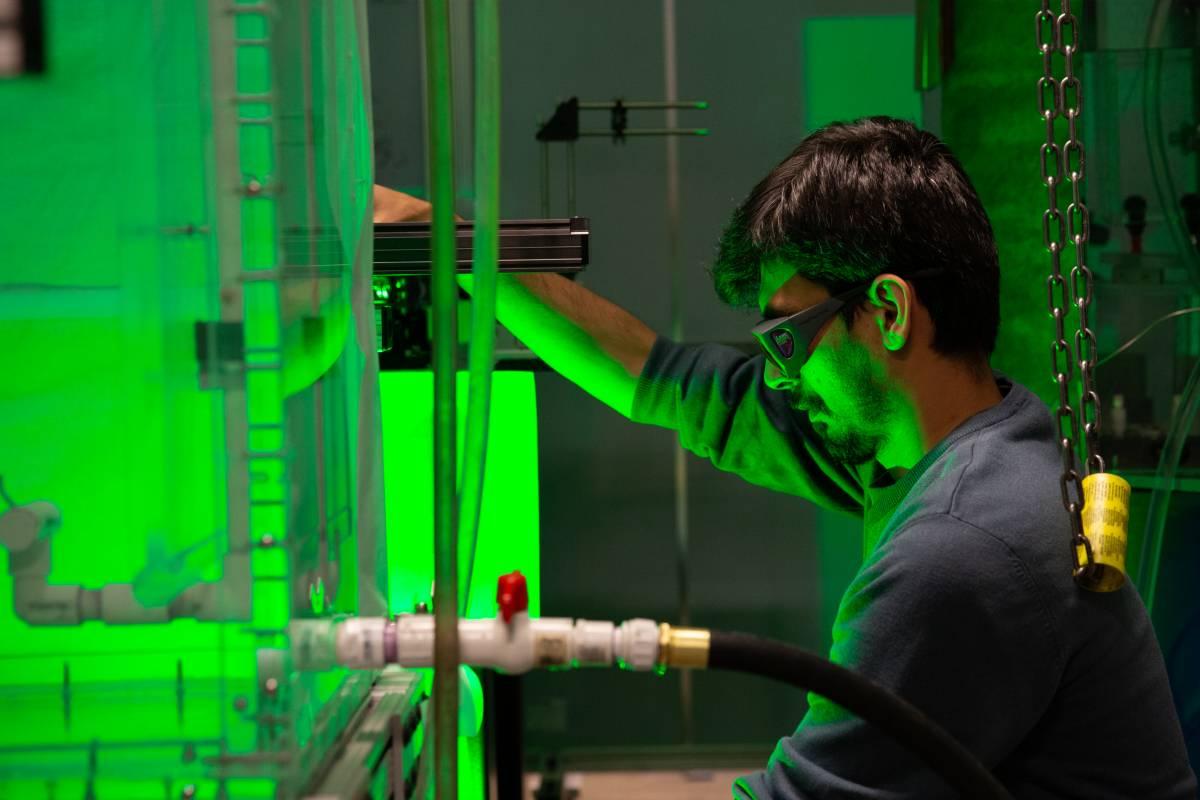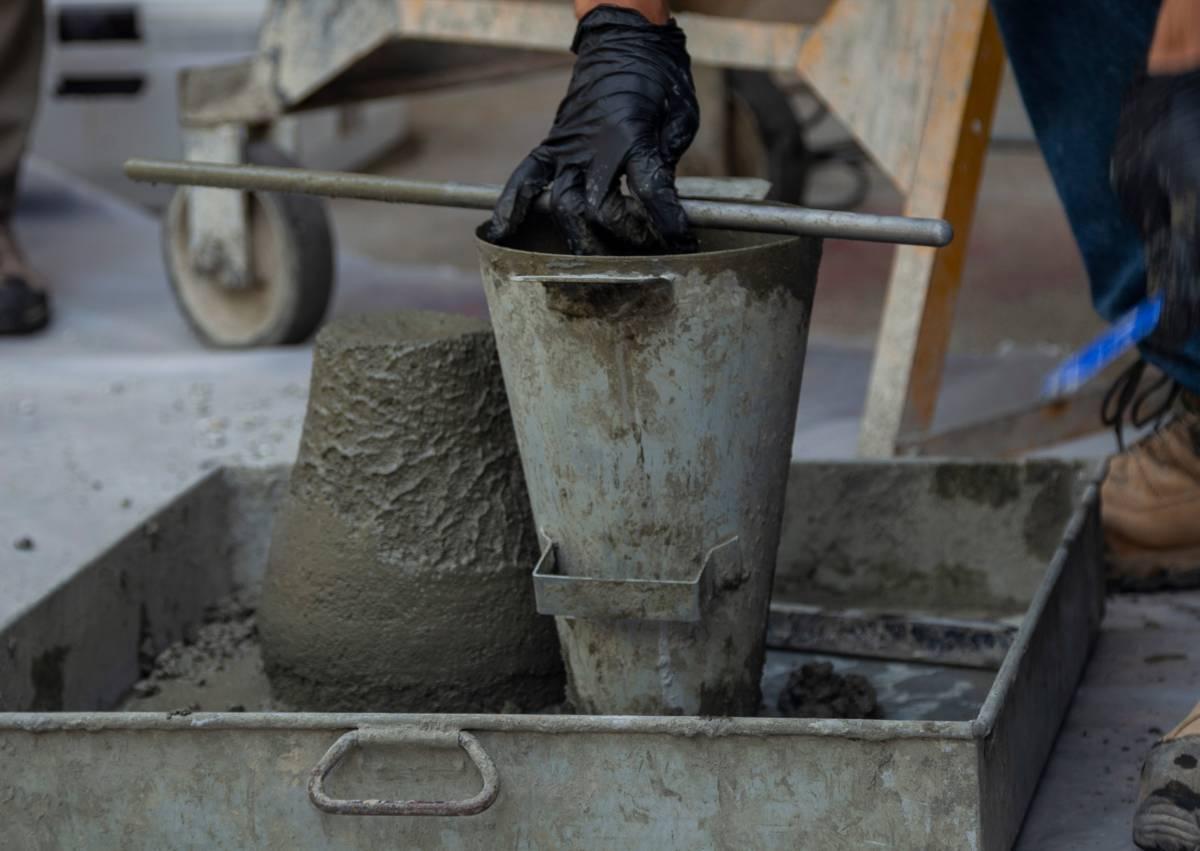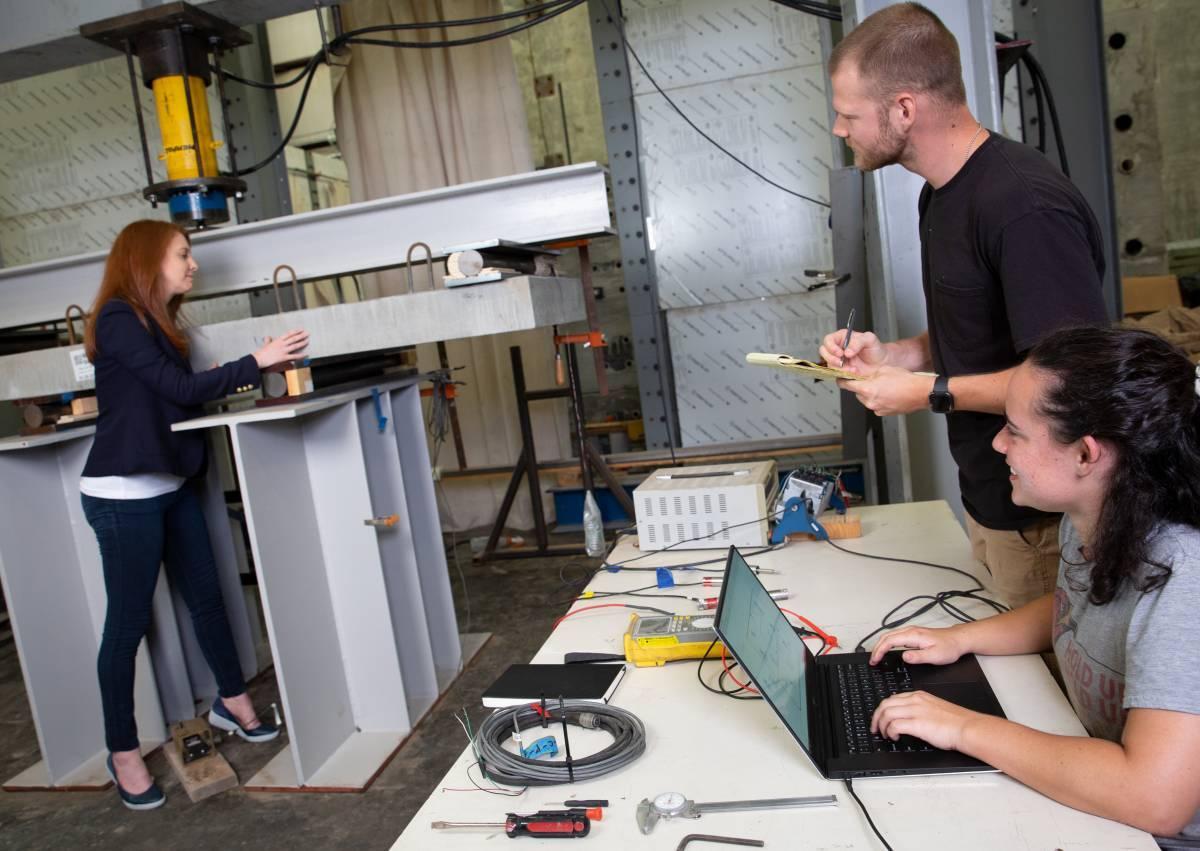Our civil and environmental engineering programs prepare leaders who will invent the technologies of the future and create solutions to the grand challenges facing our world.
Established in 1898, the School is among the largest and top ranked CEE programs in the country. Our programs focus on the intersection of the natural and built environments. Civil engineering students train to tackle projects such as roads and bridges, new technologies and materials for construction, strategies that help us recover from disasters, and projects to make our systems more equitable. Environmental engineers focus on issues that include clean drinking water, air quality monitoring, and pollution controls as well as public health and environmental restoration.

125 Years of Impact
See why we say people are our priority; the world is our laboratory — and our responsibility.
(text and background only visible when logged in)
(text and background only visible when logged in)
Undergrad Degree Programs
- B.S. in Civil Engineering
- B.S. in Environmental Engineering
- B.S./M.S. in Civil Engineering (5-year)
- B.S./M.S. in Environmental Engineering (5-year)
Graduate Degree Programs
- B.S./M.S. in Civil Engineering (5-year)
- B.S./M.S. in Environmental Engineering (5-year)
- M.S. in Bioengineering
- M.S. in Civil Engineering
- M.S. in Computational Science and Engineering
- M.S. in Engineering Science and Mechanics
- M.S. in Environmental Engineering
- Ph.D. in Bioengineering
- Ph.D. in Civil Engineering
- Ph.D. in Computational Science and Engineering
- Ph.D. in Engineering Science and Mechanics
- Ph.D. in Environmental Engineering
- Ph.D. in Ocean Science and Engineering

A holding tank in the hydro lab is used to study glacial melt.

Senior civil engineering students mix, test, and cast concrete cylinders.

Lauren Stewart and her students in the Structural Engineering and Materials Laboratory.